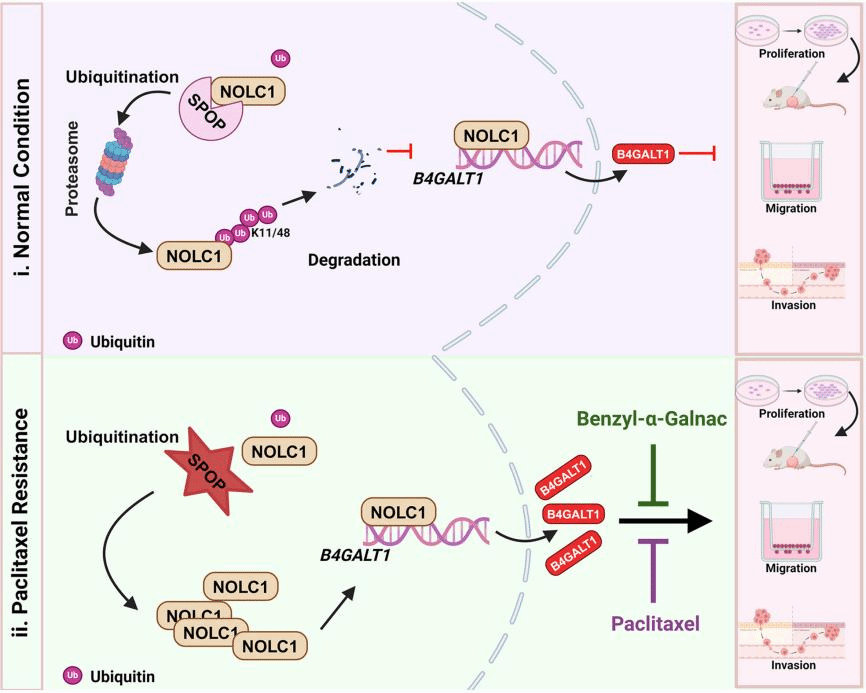On March 17, a research paper titled "SPOP/NOLC1/B4GALT1 signaling axis enhances paclitaxel resistance in endometrial cancer by inducing O-dysglycosylation" (Mechanism of SPOP/NOLC1 signaling axis dysfunction leading to O-glycosylation abnormalities and paclitaxel tolerance in endometrial cancer) by Prof. Ye Meng from the Department of Oncology, The First Affiliated Hospital of Ningbo University, and Distinguished Research Fellow Jin Xiaofeng from Ningbo University Health Science Center was published as an Article in Oncogene (top journal in Category 1 journals designated by the Chinese Academy of Sciences (CAS)), a publication under the Nature portfolio.
The study, with Ningbo University Health Science Center listed as the first affiliation, identifies co-first authors as former master's students Zhai Fengguang and Li Yuxuan, and co-corresponding authors as Prof. Ye Meng and Distinguished Research Fellow Jin Xiaofeng.
Effective treatment for paclitaxel-resistant patients remains a significant challenge. The research team discovered that NOLC1 (nucleolar and coiled-body phosphoprotein 1) is highly expressed in paclitaxel-resistant endometrial cancer (ECa) cells and pathological tissues of ECa patients, promoting cancer cell development and progression. Mechanistically, dysfunction of the E3 ubiquitin ligase SPOP leads to dysregulated ubiquitination and degradation of NOLC1. Aberrantly elevated NOLC1 acts as a transcription factor to activate B4GALT1 expression, ultimately causing O-dysglycosylation and driving endometrial cancer progression. Additionally, combining O-glycosylation inhibitors with paclitaxel effectively enhances drug sensitivity in resistant cells.

Schematic diagram illustrating SPOP-regulated NOLC1-B4GALT1 signaling axis mediating O-glycosylation disorder
leading to the initiation and progression of endometrial cancer
This work was supported by grants from the Ningbo Natural Science Foundation, Zhejiang Provincial Natural Science Foundation, and National Natural Science Foundation of China.